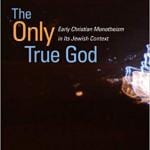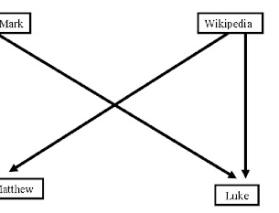We tend to focus, when thinking about doctrines of afterlife and eternal punishment, about what is or isn’t fair to the one punished. We rarely if ever take time to reflect on the ramifications of such doctrines for those who presumably won’t be subjected to the torments of hell–humans, but also God.
I heard a sermon many years ago, the ideas in which were not new then and continue to circulate or be thought of since. The sermon began with 1 Corinthians 13, the famous passage about love. It then made reference to the statement in the First Letter of John that “God is love” and suggested placing “God” wherever “love” occurs in the text. “God is patient, God is kind…” The sermon also challenged us to put our own name in the text and to ask how far short of its ideal we fall.
If one believes that God is love, this is an important test of one’s portrait of God. Here I want to focus particular attention on details that relate to notions of eternal judgment. Does God keep no record of wrong? Is God not easily angered? Of course, I am really asking about your ideas about God. If you assert that God is love and yet envisage God as short-tempered and judgmental, then one might judge your portrait of God to fall short of the standard of love articulated in 1 Corinthians 13. Isn’t that a problem?
Other texts may be brought into the picture as well. Matthew 5:46,48 challenges the followers of Jesus to do more than is typical for human beings and human cultures in emulation of God. It does this specifically with respect to loving those who do not love us. Yet more often than not, people have a concept of God as one who loathes those who do not love God. Once again, it might be better to say, those who do not love the portrait of God that their system of doctrine presents. Everyone envisages something as ultimate, as supreme, and that is what “god” means for them. No one, I suspect, hates that which they esteem most. And so there is in fact no one who hates their god, but there are those whose notion of the ultimate, the supremely important and majestic, is misplaced on something less than ultimate.
The late Eva Kor and many other Holocaust survivors have emphasized that forgiveness is less about the ones who wronged them and more about liberating themselves from a hatred and resentment that otherwise might have consumed them. Harboring a grudge gives the other person power over you. If we envisage a God who never lets go of resentment, what would that mean? Is such a concept of God inferior to those who extended forgiveness to Dylan Roof who murdered their loved ones in a church building? The God worshiped by the forgiving must by definition be at least as forgiving than they are, if not more so.
To envisage God accepting endless torment of beings that God created is to reduce God to one who is like us at our worst, not our best. To envisage humans living forever accepting others are being tormented and are eternally deserving of agony without every forgiving is to envisage an afterlife in which those deemed worthy of eternal bliss must be twisted and resentful.
If something is wrong with that picture, don’t jettison 1 Corinthians 13, 1 John, and the Sermon on the Mount in the Gospel of Matthew. Don’t jettison all your moral instincts and all that seems good and praiseworthy because you think some doctrine requires it. Instead, rethink your doctrine. That’s what others did before you to come up with those doctrines in the first place. They may have been better than what preceded them. If you can do better still, then you should, and must. To refrain from envisaging God as supremely good, loving, kind, patient, forgiving, and so on is to diminish God in ways that surely must be judged theologically unacceptable. Although many of us forego physical images of God, no one completely avoids mental, verbal, and doctrinal images. God condescends to dwell in such houses made by human hands, if they are the best we can offer. Build in a manner that does not diminish God to such an extent that a bit of human poetry from 2,000 years ago seems loftier and better than the mental image you’ve fashioned.
If you build a twisted and perverse image of God, it is not just the product of your own evil mind. It is one that will twist and distort your sense of morality and goodness further still. When we set our mind on whatever is good, noble, and true, it pulls us upwards towards it. When we set our mind on hatred, when we harbor resentment and imagine God applauding and doing likewise, it brings out the worst not only in our image of God, but in us.
I am grateful, as so often, to my Sunday school class at Crooked Creek Baptist Church for helping me think through these things in conversation with them.
Of related interest:













